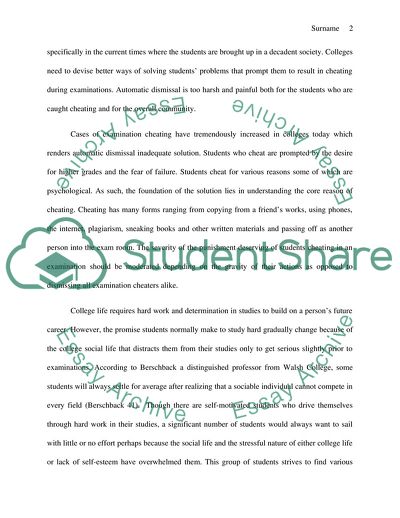Cheating in Exams: What can we do about it Assignment Example | Topics and Well Written Essays - 2500 words - 2. https://studentshare.org/education/1822067-any-student-caught-cheating-on-an-examination-should-be-automatically-dismissed-from-college
Cheating in Exams: What Can We Do about It Assignment Example | Topics and Well Written Essays - 2500 Words - 2. https://studentshare.org/education/1822067-any-student-caught-cheating-on-an-examination-should-be-automatically-dismissed-from-college.


